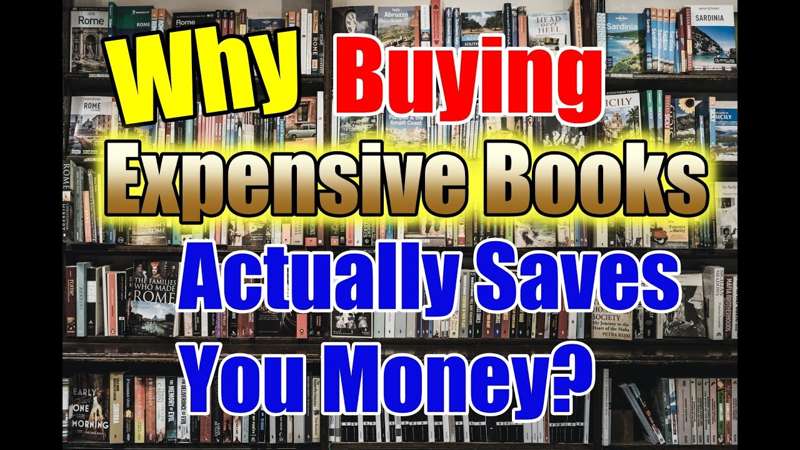How To Buy Books Like a Trillionaire Without Being a Trillionaire (Patreon)
Content
Why Buying Expensive Books Actually Saves You Money So, I love to read. I love books.
I buy a lot. I read a lot. But our time and budget and limited. This used to vex me a great deal. And I tried to get more bang for my back by getting as many books as cheaply as possible -- minimum price per book. This meant buying a lot of used books and a lot of manga sets. I now think that this over-optimization was and is a mistake. So this is what I do now: my current book-buying algorithm (Winter 2020)
Buy one and only one book per trip to the physical/digital bookstore. No sprees. No fussing over (shopping) cart contents. You may be interested in many books, but only one book makes it to the final checkout counter. This saves money and energy.
Buy the one book you (think) you want most at the time, more or less regardless of price After you've whittled down your selection and you still can't decide between two books, pick (within reason) the more expensive one.
If the book is good, great. You win.
If it sucks, you STILL win because there are still benefits, namely:
You learn that you don't need to buy any more books in the series (if applicable) or by the same author.
You learn more about yourself, the information in the book and your true book preferences by buying it than by pining after it.
In other words, you learn more about the kinds of books you DO want. You stop judging books by price, fame or prettiness and instead focus totally on content and your preferences.
You don't waste time wishing for, wanting and overthinking books any more. This saves time (duh, "not wasting time, saves time" -- no shiz, Sherlock) and mental energy. You gain mental clarity.
In general, paying money for books is a great filter. When books are free or so cheap as to be near-free, you want them all, so you get them all just because you can. Having money on the line forces you to decide on what you truly want, that is, what you want enough to spend cash on. This is one of the many reasons why purchasing books is better than using libraries (again, to the extent that your budget allows for it).
So, by buying books regardless of price (but with per-trip limits on quantity), you spend more locally, but spend less and have more fun globally. You spend less time shopping and worrying, and more time reading. Buying what you feel are expensive books is like buying a Lamborghini. Either you figure out you love Lamborghinis or you realize that it was just the price and mystique that made you THINK you loved them, and now you can get rid of the car and move on with your life. Either way, you win. And, unlike Lambos, books are, what, ten, twenny (twinny!) bucks? So, again, not overthinking book purchases can actually save you money. Buying the one book you want most per trip won't break the bank, so you're still in budget, but it will free the mind to soar. It sounds strange to say this, in no small part because it's something that you probably can't fully understand until you try it, but buying books this way ultimately -- and rather ironically -- sets you free from the soft tyranny of the price tag.
Price is no longer a consideration, at least not a major, looming one.
Having great wealth is a great thing. And using it to buy books in great quantity is doubly great. But even the wealthiest man can only physically be reading the words of one book at a time. This means that selectivity is a requirement at every level of wealth or income. We are all forced to choose, to eliminate, to budget time, money and energy -- just with different numbers. So you can legitimately tell yourself this: every bookstore is your personal library; you can and will afford every book you have ever wanted -- they all already belong to you; you don't buy books, you just pay a small fee for storage costs; since books are heavy and you can only read one book at a time (even if you switch across books like TV channels, as Khatz does), you choose to only check out one at a time, for your own convenience. You don't only buy one book at a time because you're on a small budget, you do it because you're a small human with small eyes and small hands. There aren't affordable and unaffordable books any more. There's just the current book that has made the cut. And you make that cut quickly, so you can read (some of) this book and move on to the next one. And all, still, within your budget. You're rich, bee arch!
